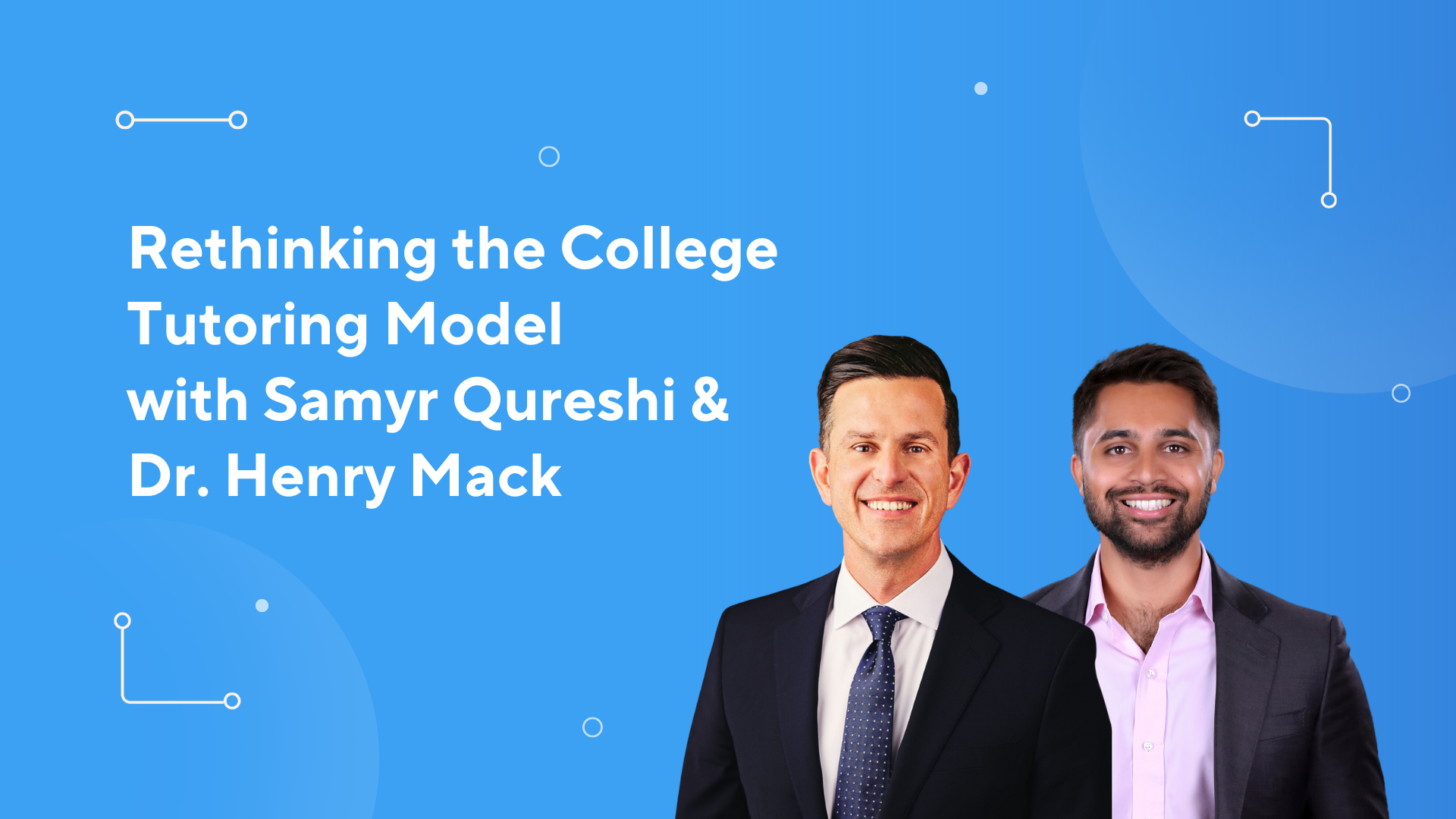As CEO and co-founder of Knack, I’ve had the privilege of engaging with educational leaders across the country, and my recent conversation with Henry Mack, Provost and Chief Academic Officer at Northwest Florida State College (NWFSC), really stood out. It provided a clear window into why NWFSC chose to partner with Knack and what they hope to achieve in the face of today’s complex higher education landscape.
Navigating the Shifting Landscape of Higher Education
Higher education is in a state of significant flux. Institutions are grappling with challenges ranging from declining enrollments and shifting student demographics to increased scrutiny over the value of a college degree. Financial pressures are mounting as public funding for education shrinks, and colleges are expected to do more with less. Moreover, the rise of technology and the changing expectations of students have forced institutions to rethink traditional models of teaching and support.
Henry Mack is acutely aware of these challenges. With his extensive experience in academic leadership and workforce development, notably as the former Senior Chancellor at the Florida Department of Education covering K-20 and Workforce Education, he understands that the old ways of doing things are no longer sufficient. During our conversation, he highlighted the pressing need to adapt to the changing needs of students, particularly those who do not fit the traditional mold.
“We know that we need to focus on nontraditional populations. We know we need to focus on adult learners here in Florida, at least around 2 million adult learners without a high school diploma, or who need basic numeracy and literacy skills to be successful in life. And so that pathway to mobility that we’re trying to forge for the adult learner is as equally and excitingly opportune as it is to focus on the students that we currently have, and ensuring that they succeed, that they persist, and that they complete,” Mack shared.
Addressing the Broader Issues in Higher Education
One of the key challenges facing higher education today is the issue of retention and persistence. As Mack pointed out, retaining students is not just a financial imperative—it’s a moral one. Many students, particularly those from low-income backgrounds, struggle to stay in school due to a variety of factors, including financial pressures, academic difficulties, and a lack of social support.
Mack’s vision for NWFSC goes beyond simply helping students pass their classes. He sees a need for comprehensive support systems that recognize and address the diverse needs of all students. “If we’re really going to meaningfully engage the adult learner, I don’t see how we do it any other way,” he noted.
The Role of Student-Centered Solutions in Driving Change
Navigating the complexities of modern higher ed requires more than just adopting new technologies or expanding services—it demands a shift in focus toward student-centered solutions that are adaptable, accessible, and effective. Institutions like NWFSC are recognizing the importance of finding the right partners who can support their mission to create a more inclusive and supportive learning environment.
College students face myriad challenges that require flexible support systems. Whether balancing work, family, or other responsibilities, students need access to academic assistance that fits into their lives. This is where the importance of choosing partners who prioritize student success becomes evident. By collaborating with organizations that offer innovative solutions, like job creation and flexible support systems, colleges can meet students where they are, providing the tools and resources necessary for them to thrive.
As Mack put it, "We have to diversify the ways that we’re going to reach students if we’re going to be successful." His perspective highlights the critical need for institutions to adapt and seek out partnerships that align with their commitment to student success.
The goal is to empower students by offering not just academic support, but also opportunities for personal and professional growth. Institutions that partner with organizations focused on student-first approaches are better equipped to drive the change needed in higher education today. By fostering a sense of community, providing employment opportunities, and ensuring that support is always within reach, these partnerships help create a more equitable and successful educational experience.
Creating a Model for the Future
As we look to the future, the partnership between NWFSC and Knack serves as a model for how institutions can adapt to the challenges of higher ed today. By leveraging technology and innovative approaches to student support, colleges can not only improve persistence and academic performance but also foster a greater sense of community and belonging among their students.
Mack’s perspective aligns closely with Knack’s mission to empower students through peer learning and support. Together, we are committed to creating a learning environment that is not only academically rigorous but also responsive to the needs of all students, regardless of their background or circumstances.
I’m excited to see how this partnership will continue to evolve and make a positive impact on the lives of students at NWFSC. By working together, we can help ensure that every student has the opportunity to succeed and achieve their full potential.
If you're interested in learning more about how to drive meaningful change in your institution, like what we're doing at Northwest Florida State College, let's connect. Together, we can explore ways to create more inclusive, supportive, and effective learning environments that truly put students first.
